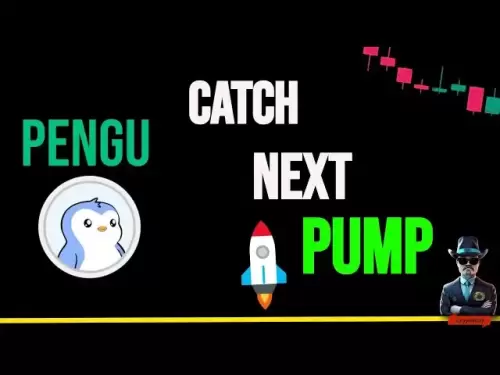-
 Bitcoin
Bitcoin $106,782.3966
-0.72% -
 Ethereum
Ethereum $2,406.7764
-1.16% -
 Tether USDt
Tether USDt $1.0005
0.02% -
 XRP
XRP $2.0918
-1.53% -
 BNB
BNB $644.5785
-0.17% -
 Solana
Solana $141.0925
-0.69% -
 USDC
USDC $1.0000
0.02% -
 TRON
TRON $0.2721
0.18% -
 Dogecoin
Dogecoin $0.1585
-1.26% -
 Cardano
Cardano $0.5497
-1.14% -
 Hyperliquid
Hyperliquid $35.8493
-1.58% -
 Bitcoin Cash
Bitcoin Cash $502.3089
2.20% -
 Sui
Sui $2.7092
3.87% -
 Chainlink
Chainlink $12.8551
-1.85% -
 UNUS SED LEO
UNUS SED LEO $9.0548
0.53% -
 Stellar
Stellar $0.2344
-0.85% -
 Avalanche
Avalanche $17.2676
-0.23% -
 Toncoin
Toncoin $2.8282
0.56% -
 Shiba Inu
Shiba Inu $0.0...01113
-1.14% -
 Litecoin
Litecoin $83.9593
-0.93% -
 Hedera
Hedera $0.1447
0.82% -
 Monero
Monero $306.9022
-2.07% -
 Bitget Token
Bitget Token $4.6358
3.42% -
 Dai
Dai $0.9999
0.01% -
 Ethena USDe
Ethena USDe $1.0001
0.02% -
 Polkadot
Polkadot $3.3211
0.06% -
 Uniswap
Uniswap $6.8775
0.75% -
 Pi
Pi $0.5664
-0.27% -
 Aave
Aave $256.0055
1.28% -
 Pepe
Pepe $0.0...09013
-3.24%
How to open a contract on AscendEX
To open a contract on AscendEX, fund your account, access the Futures Trading Interface, select the desired contract, determine order parameters, set leverage level (optional), preview and confirm order, and monitor and manage your position.
Nov 26, 2024 at 04:21 am
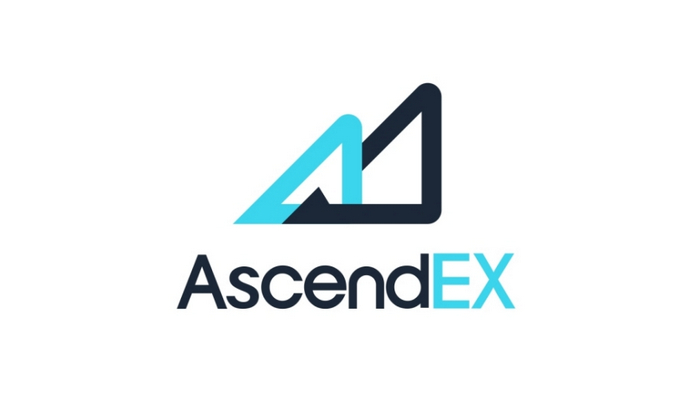
How to Open a Contract on AscendEX
AscendEX, a leading cryptocurrency exchange known for its diverse offerings including spot trading, margin trading, and derivatives products, has emerged as a popular platform for traders seeking to venture into the world of futures contracts. The ability to open a contract on AscendEX grants traders access to enhanced trading opportunities and the potential for substantial gains. Here's a comprehensive guide to navigating the process of opening a contract on AscendEX:
Step 1: Fund Your AscendEX Account
Before embarking on futures trading, it's essential to ensure that your AscendEX account is adequately funded. Deposits can be made in a variety of cryptocurrencies, including Bitcoin (BTC), Ethereum (ETH), and Tether (USDT). The platform also supports deposits via credit/debit card or bank transfer.
Step 2: Access the Futures Trading Interface
Once your account is funded, proceed to the AscendEX homepage and click on "Futures" located in the top menu bar. This will redirect you to the dedicated futures trading interface, where you can delve into the wide range of contracts available.
Step 3: Select the Desired Contract
AscendEX offers a comprehensive array of contract types, including perpetual futures and quarterly futures, across a multitude of underlying assets such as cryptocurrencies, commodities, and indices. Identify the specific contract that aligns with your trading strategy and risk appetite.
Step 4: Determine Your Order Parameters
After selecting the contract, you can specify the size and type of order you intend to place. The contract size refers to the number of units of the underlying asset that each contract represents. You can choose between Market Order, Limit Order, or Stop Order depending on your desired execution strategy.
Step 5: Set Leverage Level (Optional)
AscendEX allows traders to employ leverage in their futures trading, which amplifies both potential profits and risks. You can adjust the leverage level according to your risk tolerance and trading style. However, it's crucial to exercise caution when utilizing leverage, as it can exacerbate losses.
Step 6: Preview and Confirm Order
Before placing the order, thoroughly review the order details, including contract type, order type, quantity, leverage level, and potential liquidation price. Once satisfied with the order parameters, click on the "Open" button to execute your trade.
Step 7: Monitor and Manage Your Position
Upon successful contract opening, it's imperative to vigilantly monitor the performance of your position. Implement regular risk management strategies, such as setting stop-loss or take-profit orders, to mitigate potential downside risks and secure profits.
Disclaimer:info@kdj.com
The information provided is not trading advice. kdj.com does not assume any responsibility for any investments made based on the information provided in this article. Cryptocurrencies are highly volatile and it is highly recommended that you invest with caution after thorough research!
If you believe that the content used on this website infringes your copyright, please contact us immediately (info@kdj.com) and we will delete it promptly.
- Smart Investors Navigate the AI Token Frenzy: Bitcoin Switch and Beyond
- 2025-06-28 12:30:12
- Crypto in 2025: How Web3 AI is Poised to Dominate
- 2025-06-28 12:30:12
- Solana's Support Level Holds as MACD Crossover Hints at Potential Bullish Reversal
- 2025-06-28 12:50:12
- Cathie Wood's Ark Invest: Navigating Coinbase (COIN) and SoFi (SOFI) in a Shifting Market
- 2025-06-28 12:53:43
- Crypto 2025: Spotting the Top Coins with Real Utility
- 2025-06-28 12:42:12
- Pepe Price's Wild Ride: Cryptocurrency Milestone or Just Another Meme?
- 2025-06-28 12:42:13
Related knowledge
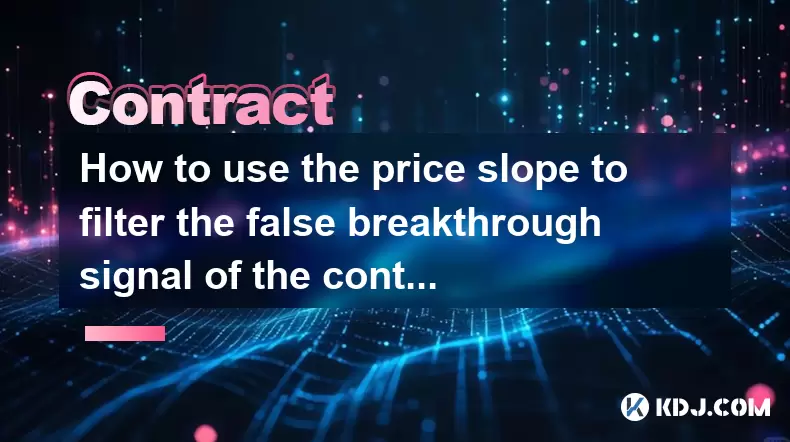
How to use the price slope to filter the false breakthrough signal of the contract?
Jun 20,2025 at 06:56pm
Understanding the Concept of Price Slope in Contract TradingIn contract trading, especially within cryptocurrency derivatives markets, price slope refers to the rate at which the price changes over a specific time period. It helps traders assess the strength and sustainability of a trend. A steep slope may indicate strong momentum, while a shallow slope...
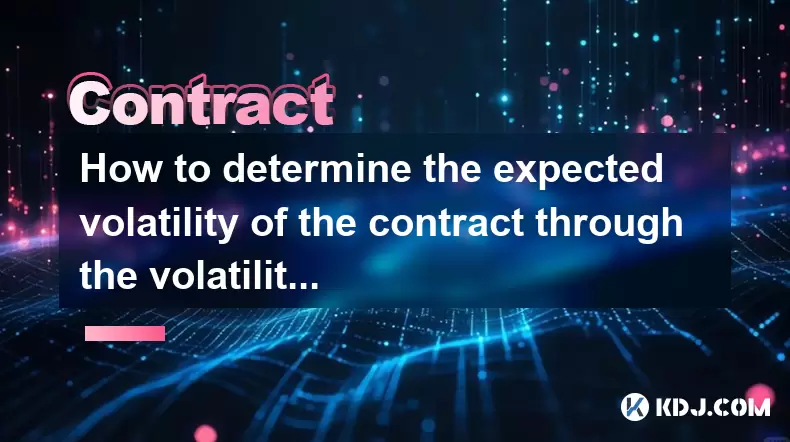
How to determine the expected volatility of the contract through the volatility cone?
Jun 19,2025 at 12:28pm
Understanding the Basics of Volatility in Cryptocurrency ContractsIn the realm of cryptocurrency trading, volatility is a key metric that traders use to assess potential risk and reward. When dealing with futures contracts, understanding how volatile an asset might become over time is crucial for position sizing, risk management, and strategy developmen...
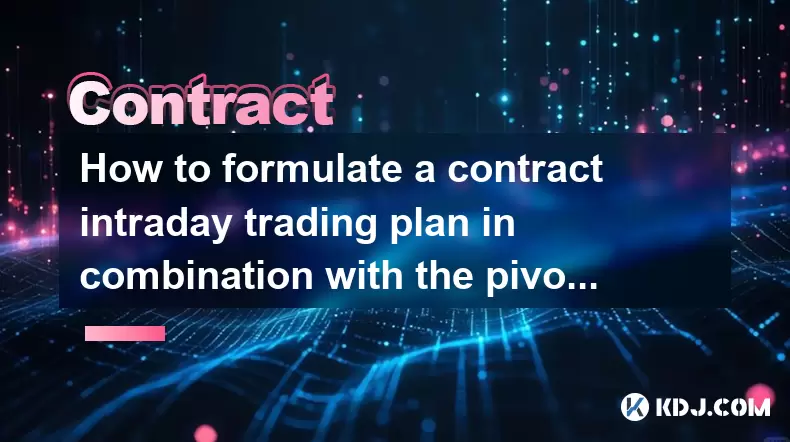
How to formulate a contract intraday trading plan in combination with the pivot point system?
Jun 21,2025 at 03:42pm
Understanding the Basics of Pivot Points in Cryptocurrency TradingPivot points are technical analysis tools used by traders to identify potential support and resistance levels. These levels are calculated using the previous day's high, low, and closing prices. In the context of cryptocurrency trading, where markets operate 24/7, pivot points help trader...
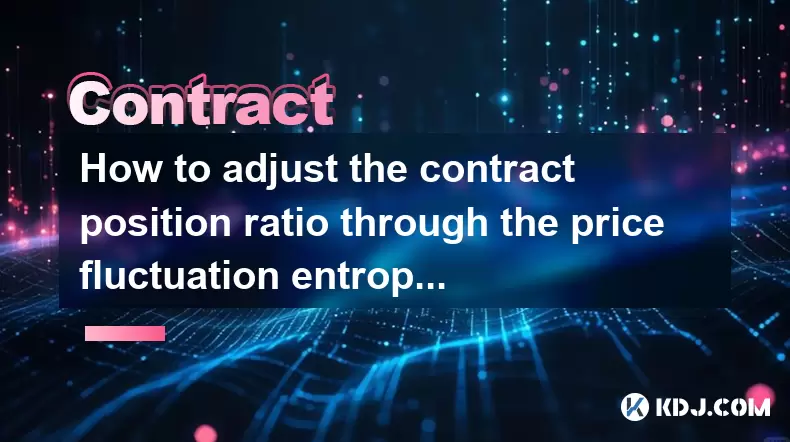
How to adjust the contract position ratio through the price fluctuation entropy?
Jun 22,2025 at 11:42am
Understanding Price Fluctuation Entropy in Cryptocurrency ContractsIn the world of cryptocurrency futures trading, price fluctuation entropy is a relatively new concept used to measure market volatility and uncertainty. It derives from information theory, where entropy refers to the degree of randomness or unpredictability in a system. In crypto contrac...
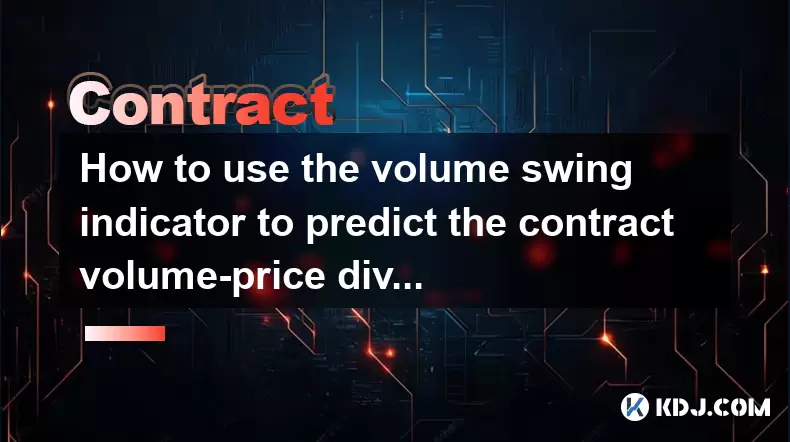
How to use the volume swing indicator to predict the contract volume-price divergence?
Jun 18,2025 at 11:42pm
Understanding the Volume Swing IndicatorThe volume swing indicator is a technical analysis tool used primarily in cryptocurrency trading to evaluate changes in volume over time. Unlike price-based indicators, this metric focuses solely on trading volume, which can provide early signals about potential market reversals or continuations. The key idea behi...
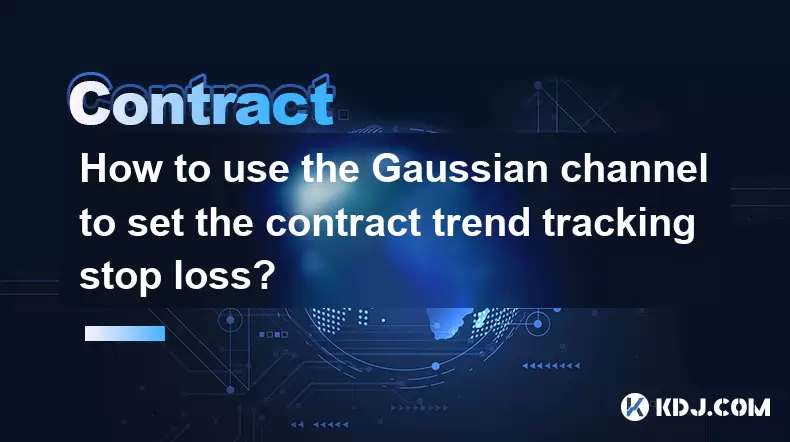
How to use the Gaussian channel to set the contract trend tracking stop loss?
Jun 18,2025 at 09:21pm
Understanding the Gaussian Channel in Cryptocurrency TradingThe Gaussian channel is a technical indicator used primarily in financial markets, including cryptocurrency trading, to identify trends and potential reversal points. It is based on statistical principles derived from the normal distribution, commonly known as the Gaussian distribution or bell ...

How to use the price slope to filter the false breakthrough signal of the contract?
Jun 20,2025 at 06:56pm
Understanding the Concept of Price Slope in Contract TradingIn contract trading, especially within cryptocurrency derivatives markets, price slope refers to the rate at which the price changes over a specific time period. It helps traders assess the strength and sustainability of a trend. A steep slope may indicate strong momentum, while a shallow slope...

How to determine the expected volatility of the contract through the volatility cone?
Jun 19,2025 at 12:28pm
Understanding the Basics of Volatility in Cryptocurrency ContractsIn the realm of cryptocurrency trading, volatility is a key metric that traders use to assess potential risk and reward. When dealing with futures contracts, understanding how volatile an asset might become over time is crucial for position sizing, risk management, and strategy developmen...

How to formulate a contract intraday trading plan in combination with the pivot point system?
Jun 21,2025 at 03:42pm
Understanding the Basics of Pivot Points in Cryptocurrency TradingPivot points are technical analysis tools used by traders to identify potential support and resistance levels. These levels are calculated using the previous day's high, low, and closing prices. In the context of cryptocurrency trading, where markets operate 24/7, pivot points help trader...

How to adjust the contract position ratio through the price fluctuation entropy?
Jun 22,2025 at 11:42am
Understanding Price Fluctuation Entropy in Cryptocurrency ContractsIn the world of cryptocurrency futures trading, price fluctuation entropy is a relatively new concept used to measure market volatility and uncertainty. It derives from information theory, where entropy refers to the degree of randomness or unpredictability in a system. In crypto contrac...

How to use the volume swing indicator to predict the contract volume-price divergence?
Jun 18,2025 at 11:42pm
Understanding the Volume Swing IndicatorThe volume swing indicator is a technical analysis tool used primarily in cryptocurrency trading to evaluate changes in volume over time. Unlike price-based indicators, this metric focuses solely on trading volume, which can provide early signals about potential market reversals or continuations. The key idea behi...

How to use the Gaussian channel to set the contract trend tracking stop loss?
Jun 18,2025 at 09:21pm
Understanding the Gaussian Channel in Cryptocurrency TradingThe Gaussian channel is a technical indicator used primarily in financial markets, including cryptocurrency trading, to identify trends and potential reversal points. It is based on statistical principles derived from the normal distribution, commonly known as the Gaussian distribution or bell ...
See all articles





















